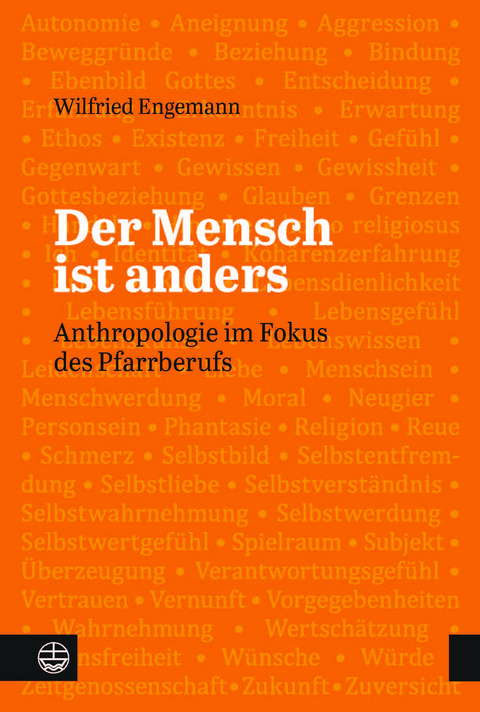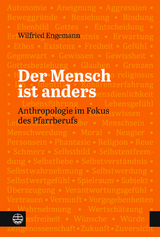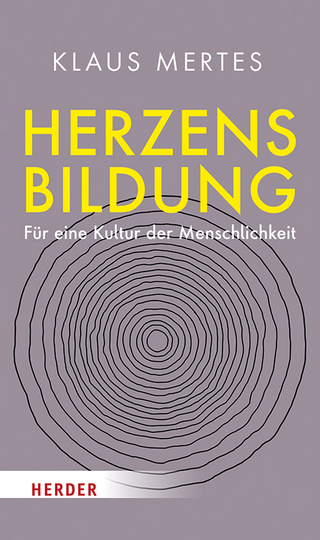Der Mensch ist anders
Anthropologie im Fokus des Pfarrberufs
Seiten
2024
|
1. Auflage
Evangelische Verlagsanstalt
978-3-374-07607-9 (ISBN)
Evangelische Verlagsanstalt
978-3-374-07607-9 (ISBN)
Menschen sind um ihres Lebens willen religiös, nicht um der Götter willen. Welche Erzählungen auch immer für eine Religion prägend werden, sie haben ihre Wurzeln in der von jedem Menschen zu bewältigenden Herausforderung, unter vorgegebenen Bedingungen ein nicht vorgegebenes Leben zu führen. Die Brauchbarkeit einer Theologie für das Verständnis, die Gestaltung und Bewertung religiöser Praxis steht und fällt daher mit ihrer Anthropologie. Es gilt, in Theologie und Kirche von der latenten Diffamierung des Menschseins als Handicap eines Lebens aus Glauben Abstand zu nehmen. Wer an der religiösen Praxis des Christentums partizipiert, sollte die Erfahrung machen, als Mensch zum Vorschein zu kommen. Die Beiträge dieses Buches gehen der Frage nach, was das für den Ansatz der Praktischen Theologie und für Seelsorge, Predigt und Gottesdienst bedeutet.
[Man is different. Anthropology in the focus of the parish profession]
Human beings are religious for the sake of their lives, not for the sake of gods. Whatever narratives become formative for a religion, they have their roots in the challenge to be met by every human being to lead a life that is not given under given conditions. The usefulness of a theology for understanding, shaping and evaluating religious practice therefore stands and falls with its anthropology. In theology and church, it is necessary to refrain from the latent defamation of the human condition as a handicap of a life of faith. Whoever participates in the religious practice of Christianity should have the experience of appearing as a human being. The contributions in this book explore what this means for the approach of practical theology and for pastoral care, preaching and worship.
[Man is different. Anthropology in the focus of the parish profession]
Human beings are religious for the sake of their lives, not for the sake of gods. Whatever narratives become formative for a religion, they have their roots in the challenge to be met by every human being to lead a life that is not given under given conditions. The usefulness of a theology for understanding, shaping and evaluating religious practice therefore stands and falls with its anthropology. In theology and church, it is necessary to refrain from the latent defamation of the human condition as a handicap of a life of faith. Whoever participates in the religious practice of Christianity should have the experience of appearing as a human being. The contributions in this book explore what this means for the approach of practical theology and for pastoral care, preaching and worship.
Wilfried Engemann, Dr. theol., Jahrgang 1959, ist Professor für Praktische Theologie am Institut für Praktische Theologie und Religionspsychologie der Evangelisch-Theologischen Fakultät der Universität Wien. Zu seinen Schwerpunkten gehören u. a. die semiotische und psychologische Erforschung theologischer und religiöser Kommunikationsprozesse, die Verknüpfung seelsorglicher, homiletischer und liturgischer Konzepte mit Fragen der Lebenskunst sowie – auf der Suche nach einer Menschen gerecht werdenden, interdisziplinär stimmigen Anthropologie – die Analyse und Kritik des Menschenbildes in Theologie und Kirche. Er ist Autor und Herausgeber zahlreicher Schriften, die zum Teil auch in verschiedene Sprachen übersetzt vorliegen.
| Erscheinungsdatum | 17.04.2024 |
|---|---|
| Zusatzinfo | Illustrationen |
| Verlagsort | Leipzig |
| Sprache | deutsch |
| Maße | 155 x 230 mm |
| Einbandart | kartoniert |
| Themenwelt | Geisteswissenschaften ► Religion / Theologie ► Christentum |
| Schlagworte | Anthropologie • Gottesdienst • Menschenbild • Predigt • Schöpfung • Seelsorge |
| ISBN-10 | 3-374-07607-6 / 3374076076 |
| ISBN-13 | 978-3-374-07607-9 / 9783374076079 |
| Zustand | Neuware |
| Haben Sie eine Frage zum Produkt? |
Mehr entdecken
aus dem Bereich
aus dem Bereich




